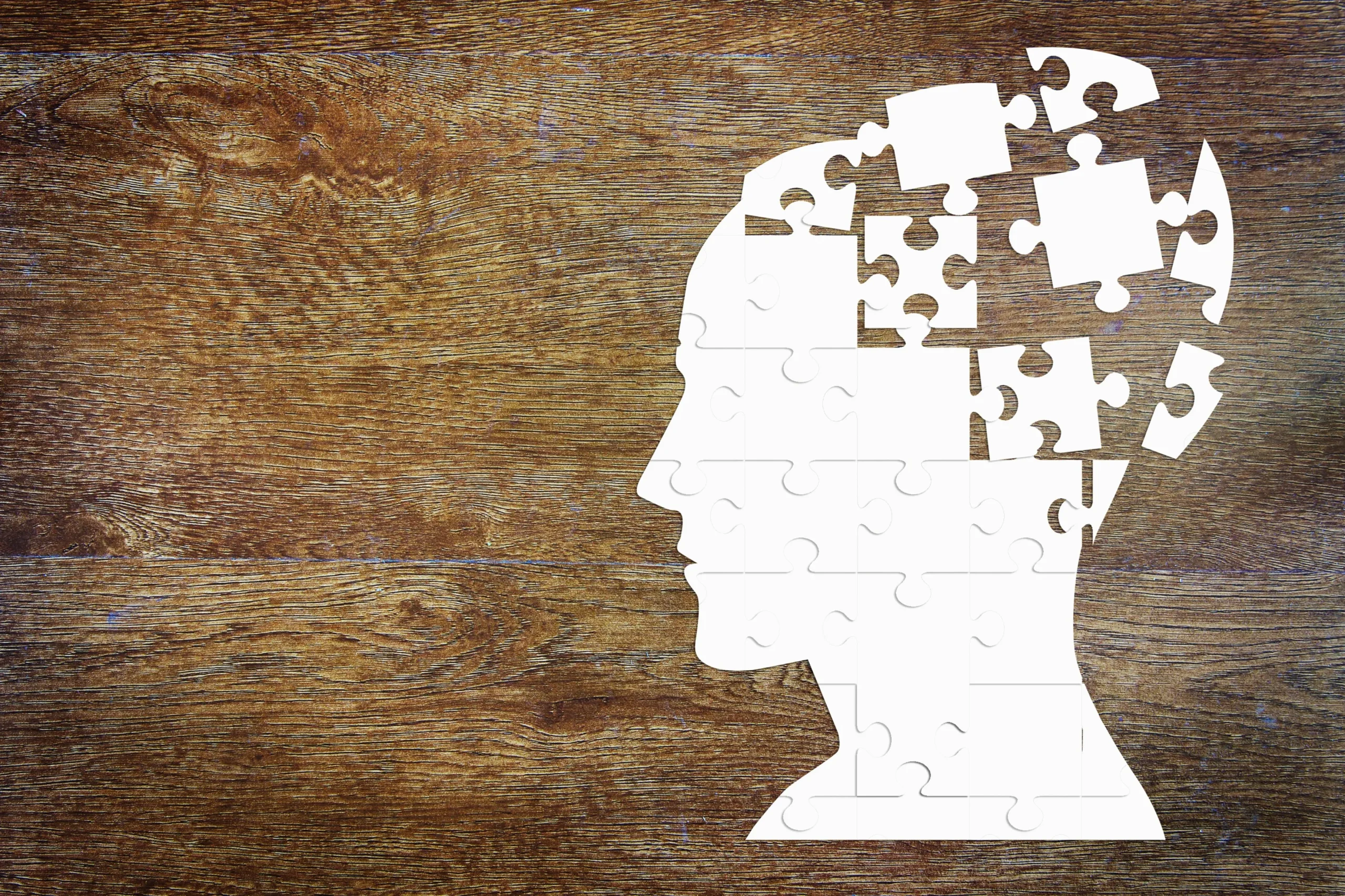Complex PTSD (C-PTSD) represents a severe, enduring form of post-traumatic stress disorder stemming from prolonged exposure to traumatic contexts such as long-term abuse, captivity, or prolonged domestic violence. Unlike episodic trauma that characterises standard PTSD, C-PTSD involves deeper emotional wounds and a more profound impact on people’s mental health. The effects of C-PTSD on the brain, which extend beyond traditional PTSD symptoms, have a substantial effect on cognitive, emotional, and neural functioning.
Understanding this impact has practical significance for patients who suffer from C-PTSD and the healthcare providers dedicated to treating them. By looking at how C-PTSD alters brain function, we can find pathways towards more effective and empathetic approaches to therapy and support. This understanding is vital in developing targeted treatments that address the specific challenges posed by this complex condition, ensuring that those affected can find a path to recovery that supports recovery and acknowledges the severity of their experiences.
Understanding C-PTSD
Complex post-traumatic stress disorder (C-PTSD) develops due to prolonged exposure to traumatic situations where the person feels little chance of escape, such as chronic abuse, long-term captivity, or exposure to family and domestic violence over extended periods. This form of PTSD is distinguished by its complexity and the depth of emotional and psychological distress it causes, differing significantly from standard PTSD, which often results from single-event traumas.
C-PTSD is characterised not only by the standard symptoms of PTSD, such as flashbacks, heightened alertness, and avoidance behaviours but also by deeper layers of emotional disturbance. These include persistent feelings of shame or guilt, a complex relationship with the perpetrator (often marked by a disempowering dependency), and a pervasive sense of helplessness or despair. The types of trauma associated with C-PTSD typically involve a direct attack on the person’s basic safety, dignity, and attachment needs, leading to complex emotional and psychological responses.
By focusing on the unique challenges of prolonged trauma exposure, it becomes apparent why C-PTSD requires a distinct therapeutic approach. The enduring nature of the trauma experienced by individuals with C-PTSD disrupts their sense of self and the ability to form healthy relationships, complicating recovery and necessitating specialised treatment strategies.
Neurological Impact of C-PTSD
Complex PTSD imposes profound changes within the brain, notably affecting regions involved in stress regulation and emotional response. The persistent nature of trauma experienced in C-PTSD leads to distinct neurobiological adaptations, particularly within the amygdala, hippocampus, and prefrontal cortex – areas critical to our emotional and cognitive functions.
Amygdala
Known for its role in processing fear and emotional reactions, the amygdala in C-PTSD sufferers often shows heightened activity. This hyperactivation contributes to the increased anxiety, irritability, and impulsive responses commonly observed in these individuals. The constant alertness to threat essentially keeps the amygdala in an overstimulated state, leading to a perpetual cycle of stress and fear.
Hippocampus
This region is key for memory formation and retrieval. In individuals with C-PTSD, the hippocampus can become atrophied or reduced in volume due to prolonged exposure to stress hormones like cortisol. This atrophy correlates with common C-PTSD symptoms such as memory loss, particularly in forming new memories or recalling specific details about the trauma, contributing to an overall disorientation in time and place.
Prefrontal Cortex
Responsible for regulating emotions and impulses, the prefrontal cortex works to modulate responses initiated by the amygdala. However, with C-PTSD, this modulation is often impaired, leading to difficulties in managing emotional reactions and making rational decisions. The reduced regulatory capacity of the prefrontal cortex is evident in emotional dysregulation, such as sudden anger, impulsive decisions, or persistent sadness, that affects people with C-PTSD.
These brain alterations not only illustrate the significant impact of chronic trauma on neurological functioning but also explain the complex symptomatology of C-PTSD, which includes challenges in managing emotions, heightened vigilance for threats, and disruptions in autobiographical memory.
Biological and Chemical Changes in C-PTSD
Significant biological and chemical alterations occur in C-PTSD, primarily affecting neurotransmitter systems and stress hormone pathways. These changes are significant in understanding the persistent and often debilitating symptoms of C-PTSD.
- Neurotransmitter Systems: The balance of neurotransmitters, such as serotonin and dopamine, is necessary for mood regulation and emotional stability. In C-PTSD, chronic trauma can disrupt this balance, leading to decreased serotonin levels, which are commonly associated with depression, and altered dopamine levels, which can affect reward processing and motivation. These imbalances are thought to contribute to some of the core symptoms of C-PTSD, including persistent sadness, loss of interest in previously enjoyed activities, and anhedonia.
- Stress Hormone Pathways: Chronic exposure to stress in C-PTSD affects the body’s ability to regulate cortisol and adrenaline, hormones that play important roles in the stress response. Typically, cortisol helps to mobilise energy in response to stress and returns the body to a resting state afterwards. However, in C-PTSD, cortisol regulation is often impaired, leading to either abnormally high or low levels. This dysregulation can manifest as an enhanced startle response, fatigue, or a sense of constant alertness. Similarly, adrenaline levels may be persistently elevated, contributing to anxiety and insomnia.
These biochemical disruptions have direct implications for the symptoms experienced by those with C-PTSD. For example, hypervigilance – a state of constant alertness to potential threats – is partly sustained by excessive adrenaline, while altered neurotransmitter and cortisol levels exacerbate emotional dysregulation and memory issues.
Psychological Consequences of C-PTSD
The neurological and biochemical changes associated with C-PTSD inevitably lead to psychological effects. These consequences manifest in several distressing symptoms that can severely impact an individual’s daily life and emotional well-being.
- Emotional Dysregulation: One of the hallmark symptoms of C-PTSD is difficulty managing and regulating emotions. Individuals may experience sudden, intense emotional responses to triggers that seem disproportionate to the situation. This instability can be traced back to disrupted neurotransmitter systems, which impair the brain’s ability to moderate feelings and responses effectively.
- Negative Self-Perception: C-PTSD often leads to feelings of worthlessness and a distorted self-image. This negative perception can stem from prolonged exposure to traumatic events, which leave people feeling powerless and doubting their value. The constant stress and emotional turmoil reinforce these negative beliefs, making it challenging to maintain healthy self-esteem.
- Relationship Difficulties: The impact of C-PTSD extends into personal relationships as well. The combination of emotional dysregulation, negative self-perception, and trust issues can make it difficult for sufferers to form and maintain close relationships. They might appear withdrawn or overly dependent, and conflicts may arise more frequently due to their heightened sensitivity to perceived threats or criticism.
- Avoidance Behaviours: To cope with the distress caused by triggers and memories of traumatic events, individuals with C-PTSD might engage in avoidance behaviours. This can include avoiding people, places, or situations that remind them of past trauma, which, while providing short-term relief, can lead to isolation and limit their ability to function in various aspects of life. They might also attempt to self-regulate using alcohol or illegal substances, which significantly increases the risk of addiction.
Don’t Struggle with C-PTSD Alone
If you’re struggling with Complex PTSD, know that you’re not alone and that help is available.
At Assured Healthcare and Wellness, we specialise in providing personalised, trauma-informed care to individuals navigating mental health challenges. Our unique approach offers the option of receiving treatment in the comfort and privacy of your home, ensuring you can access the support you need in a safe and familiar environment.
Our team of experienced healthcare professionals is dedicated to creating customised treatment plans that cater to your unique needs, addressing both the psychological symptoms and the underlying neurobiological disruptions caused by C-PTSD.
Take the first step towards healing. Contact Assured Healthcare and Wellness today to learn more about our at-home care services and how we can support you on your journey to recovery.
Sources:
- https://link.springer.com/article/10.1007/s00127-017-1350-8
- https://pubmed.ncbi.nlm.nih.gov/17255075/
- https://www.ncbi.nlm.nih.gov/pmc/articles/PMC3181836/
- https://www.psychiatrist.com/jcp/reduced-anterior-cingulate-orbitofrontal-volumes-child/
- https://www.cambridge.org/core/journals/psychological-medicine/article/distinctive-neural-circuitry-of-complex-posttraumatic-stress-disorder-during-threat-processing/17D95CBD01C1275F9E8AD4E4B20B3640
- https://onlinelibrary.wiley.com/doi/abs/10.1002/da.23235
- https://www.mdpi.com/2077-0383/9/9/2951
- https://www.sciencedirect.com/science/article/pii/S0006322311006809
- https://www.cambridge.org/core/journals/the-british-journal-of-psychiatry/article/cortisol-and-posttraumatic-stress-disorder-in-adults/6FFFD1E8E88D99439D7BC2D0B46AD820
- https://link.springer.com/article/10.1007/s11062-016-9559-9



